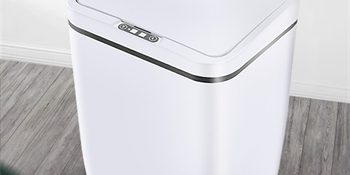Educational institutions are not only places of learning but also spaces that shape values and habits. Maintaining cleanliness and hygiene within these environments is vital for the health and well-being of students and staff. Sensor bins have emerged as an innovative solution that addresses waste management challenges in educational institutions. This article explores how sensor bins contribute to creating clean and conducive learning environments.
Promoting Hygiene Awareness:
- Touchless Operation: Sensor bins teach students the importance of proper waste disposal, as they encourage hygienic habits and minimize cross-contamination risks.
- Health Education: Educational institutions can incorporate sensor bins into hygiene education programs, emphasizing responsible waste management practices.
Minimizing Disruptions:
- Efficient Waste Disposal: Sensor bins reduce the time and effort required for waste disposal, minimizing disruptions in classrooms and other educational spaces.
- Clean and Tidy Spaces: By facilitating efficient waste management, sensor bins contribute to creating clean and organized learning environments.
Safe and Healthy Spaces:
- Reducing Health Risks: The touchless operation of sensor bins contributes to reducing the spread of germs, promoting the overall health of students and staff.
- Supporting Student Well-being: A hygienic and tidy environment fosters a positive atmosphere that enhances student well-being and academic performance.
Hygiene Across Campus:
- Classrooms: Sensor bins in classrooms maintain a clean and distraction-free environment that supports effective teaching and learning.
- Common Areas: In cafeterias, libraries, and outdoor spaces, sensor bins contribute to a cleaner and more inviting campus atmosphere.
Fostering Responsibility:
- Environmental Stewardship: Sensor bins provide an opportunity to educate students about responsible waste management and environmental sustainability.
- Personal Accountability: Encouraging proper waste disposal through sensor bins instills a sense of personal responsibility and consideration for the well-being of the entire community.
Future Outlook:
As technology advances, sensor bins could become more integrated within educational institutions, potentially linking waste management data to broader sustainability initiatives.
In conclusion, sensor bins are revolutionizing waste management in educational institutions by promoting hygiene, efficiency, and responsible waste disposal practices among students and staff. By prioritizing cleanliness and well-being, educational institutions create environments that support effective learning and personal growth.







